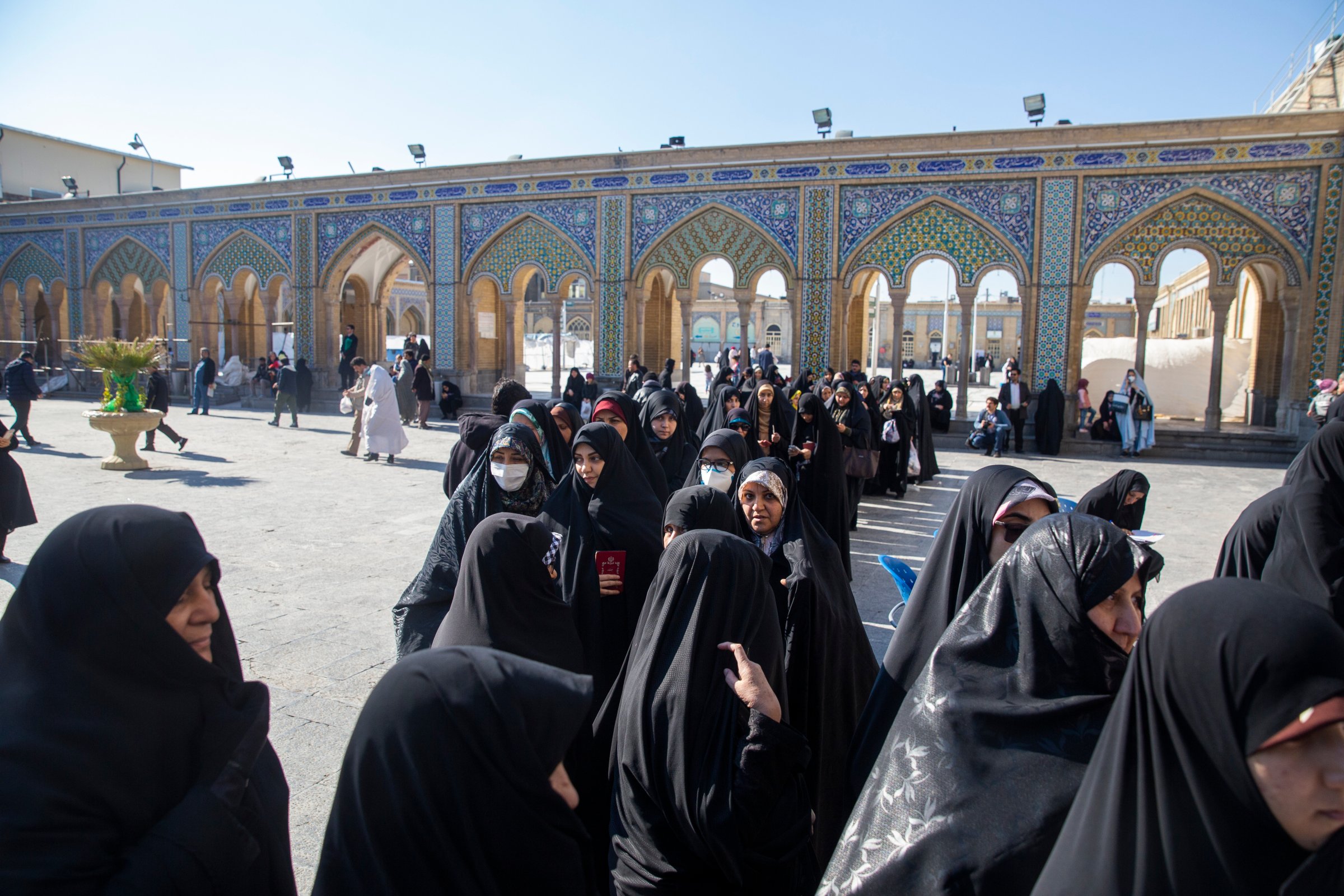
The victory by hard-liners in Iran’s election puts parliament back in the hands of people determined to turn the clock back on reconciliation with the West. Expect a retreat from commitments to the hollowed-out nuclear deal as the Islamic Republic’s economy bleeds from President Donald Trump’s sanctions onslaught.
“The results that we’re seeing in the parliamentary elections are basically a manifestation of what’s been going on since early summer last year, when Iran started its more confrontational foreign policy approach,” said Adnan Tabatabai, Iran analyst and co-founder of the Bonn-based Center for Applied Research in Partnership with the Orient. “It makes things much more difficult for safeguarding the nuclear agreement.”
At the same time, because conservatives now have such a strong representation in government, “talks with Washington will be a function of a strategic calculus, not a balance of domestic power,”said Ali Vaez, Iran project director at the International Crisis Group consultancy. That means engagement will be tougher, but isn’t necessarily doomed, he said.
Conservative factions loyal to Supreme Leader Ayatollah Ali Khamenei and wedded to the theocratic ideals of Iran’s 1979 Islamic revolution prevailed in Friday’s vote. It was a repudiation of the policies of President Hassan Rouhani, who eased Iran’s long-running standoff with global powers but was unable to build a new era of prosperity at home because of crippling U.S. sanctions.
With sentiment against the 2015 nuclear deal and the West running high, especially after the U.S. killed a top Iranian general in a drone strike in January, the powerful Guardian Council was freed to disqualify most moderates and centrists from running in the election. The disqualifications, along with a reported surge in coronavirus cases in Iran this week, saw turnout fall to record low 42.5% and handed Khamenei a pliant legislature.
After four years of a moderate president and parliament, arch-conservatives now control most branches of the state for the first time since the end of Mahmoud Ahmadinejad’s presidency in 2013.
While the fierce infighting that characterized Rouhani’s tenure is likely to ease, it will come at the cost of public support for a political system already faced with outbreaks of dissent and unrest. And the parliamentary election comes ahead ahead a vote next year for a new president.
The increased representation of former security figures in parliament — including from the powerful Islamic Republic Guard Corps — may diminish tolerance for discussions around civil society, social liberties and media freedom. Still, Tabatabai said the new lawmakers aren’t necessarily monolithic in their thinking, and include reform-minded elements as well.
Friday’s election was tilted in the conservatives’ favor months before grievances against the government erupted into four days of protests that unleashed the fiercest crackdown since the 1979 revolution. More than 300 people were killed in the demonstrations, according to human rights groups’ estimates.
Khamenei, who has accused European signatories to the nuclear accord of joining forces with the U.S. against Iran (Trump withdrew the U.S. from the pact in 2018), has called for a pivot to a “resistance economy.” His plan would depend less on imported goods while relying on China and Russia for investment and technology transfers. Sanctions, however, are only part of the problem in an economy where productivity is low and the private sector is weak.
The new legislature will “have to deal with the same problems of the current parliament, which are economic and socioeconomic problems of ordinary people, and they will also have to offer solutions to that,” Tabatabai said.
Iran’s economic policy may steer away from Europe entirely, after it failed to find a way to skirt the American sanctions and allow crucial Iranian oil exports to flow. A more concerted effort to broaden and deepen trade ties with China and Russia could follow. The Guard, already a major contractor and builder, is likely to be awarded further domestic infrastructure projects as sanctions have killed most avenues to foreign direct investment.
Given the more conservative legislature, Rouhani may struggle to ratify any key legislation during his final year in office, including efforts to bring Iran’s banks within international anti-terrorism financing standards. Ongoing attempts to impeach some key ministers, including Oil Minister Bijan Namdar Zanganeh, are also likely to escalate.
In a timely reminder of how hard-liners can influence economic policy, the Paris-based Financial Action Task Force announced on Friday that Iran’s banking system will be returned to its so-called black list of countries after failing to ratify legislation required to bring the sector in line with counter-terrorism financing and anti-money-laundering standards.
Hardliners have for several years stalled the pro-FATF legislation that Rouhani promoted.
For all the stumbling blocks, Iran may not snap shut its doors to the West entirely, said Vaez from the International Crisis Group.
“If past is prelude, engagement with Iran’s hardliners is much harder for the West,” Vaez said. “The new parliament is bound to adopt a much more militant approach to foreign and nuclear policies. But at the end of the day, the deep state in Iran is likely to still calculate pragmatically to ensure self-preservation.”Hardliners Declare Victory in Iranian Elections, Turning Back the Clock on Relations With the West
–With assistance from Amy Teibel.
More Must-Reads from TIME
- Cybersecurity Experts Are Sounding the Alarm on DOGE
- Meet the 2025 Women of the Year
- The Harsh Truth About Disability Inclusion
- Why Do More Young Adults Have Cancer?
- Colman Domingo Leads With Radical Love
- How to Get Better at Doing Things Alone
- Michelle Zauner Stares Down the Darkness
Contact us at letters@time.com